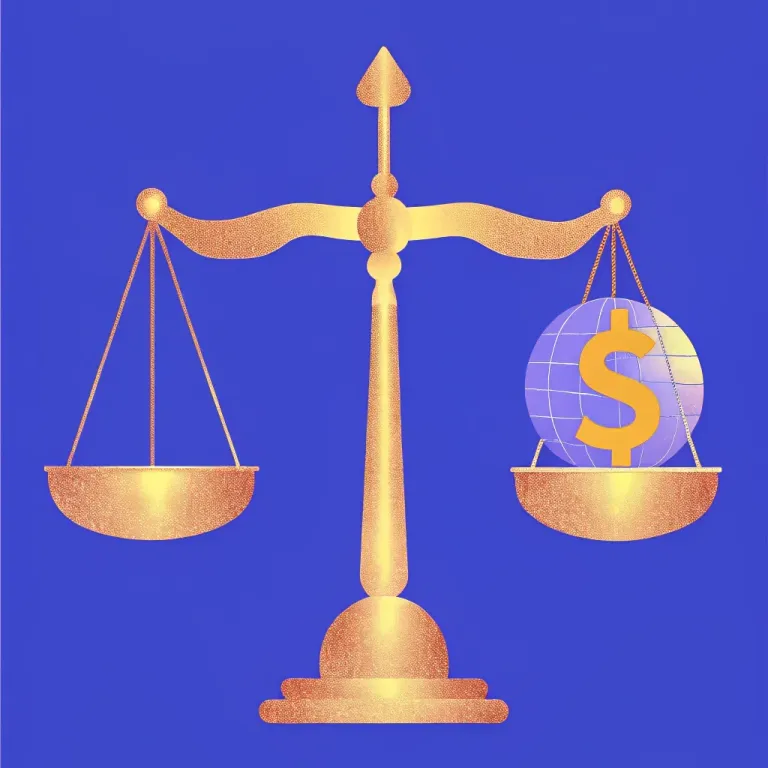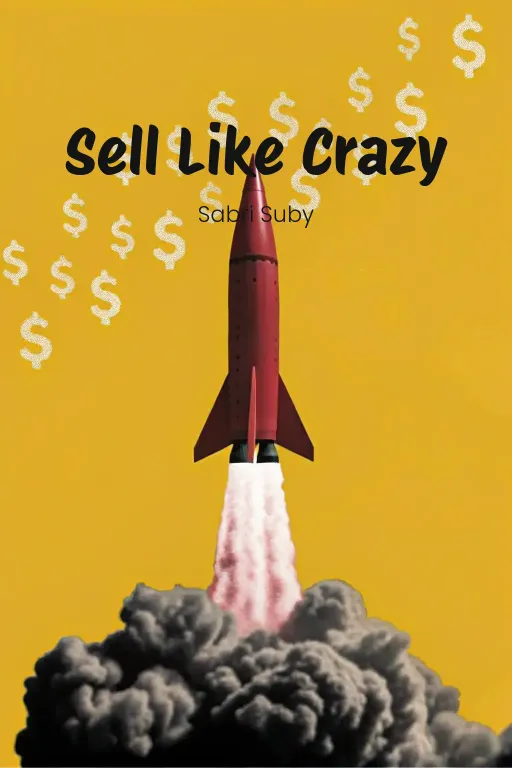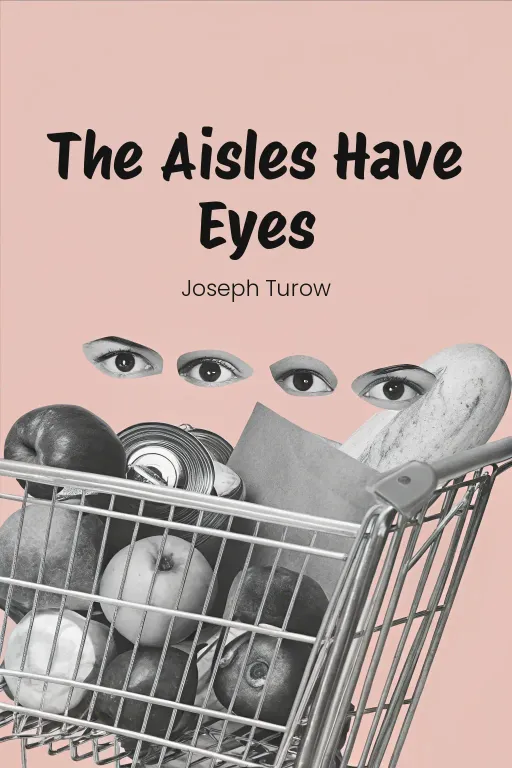
Marketing's Immutable Laws: Stand Out!
Podcast by Let's Talk Money with Sophia and Daniel
Violate Them At Your Own Risk!
Introduction
Part 1
Daniel: Alright everyone, welcome! Today we're diving deep into a marketing classic: “The 22 Immutable Laws of Marketing” by Al Ries and Jack Trout. If you're trying to figure out real marketing success—beyond just fleeting trends—this is for you. Sophia: Yeah, have you ever wondered why some brands just stick with you, while others disappear overnight? That's what we're tackling today. Here’s a hint: it's not always about having the absolute best product. Daniel: Exactly! Ries and Trout argue that perception trumps reality. It’s not about being the best, it’s about being first in the consumer's mind, keeping things simple, and avoiding those tempting but often disastrous moves, like stretching your brand too thin or chasing quick profits. Sophia: Totally. Because if there’s one thing that screams trouble, it's a brand trying to be everything to everyone. Harley-Davidson perfume, anyone? Daniel: So today, we’re breaking down three key ideas from the book—each crucial for marketing success. First, we’ll look at why being first matters even more than being “better.” Sophia: Think of it as claiming territory. If you plant your flag first, you basically win the mental game. Daniel: Exactly. Second, we’ll highlight that in marketing, perception IS reality. What the customer believes is what matters, regardless of the actual facts. Marketing builds on that perception, and brands that ignore this simply won’t last. Sophia: And finally, we'll explore the power of owning just one word—yep, a single word—in your customer's mind. Because that's the difference between being remembered and just fading into the background. Daniel: In the book, marketing is a battle, and these laws are your strategic advantage. So grab your notes—we're about to give you a masterclass on standing out in a crowded market. Sophia: Or, at the very least, we'll help you avoid a major face-palm moment with your next marketing campaign. Let’s jump in!
The Law of Leadership
Part 2
Daniel: So, Sophia, we’ve set the stage. Now, let's dive into the first core law: The Law of Leadership. Why is being “first” so crucial in marketing, really? It's almost like winning a race that no one is aware of. Sophia: Good point, Daniel. Daniel: That’s a great way to put it, Sophia, and yes, being first is absolutely key. The Law of Leadership says it’s better to be first than to be better. And the reason for that? Marketing isn’t about objective reality – it’s a battle of perceptions. The first brand to claim a category in people’s minds essentially owns that space. Think about Hertz, for example. They were the first major player in car rentals, and even now, when people think of renting a car, Hertz is often the first name that pops up. Sophia: Okay, fair enough, Hertz did well. But is it really that simple? What if being “first” just means you stumble into people's minds and then someone with a slightly better version comes along and steals the show? I mean, look at Myspace – first big social network, completely crushed by Facebook. Daniel: That's a very valid point, and it's true. This principle isn’t a slam dunk. Being first just gives you a head start. If you don’t maintain that lead or evolve, you’ll fall behind. Myspace is a great example. They didn’t really define social networking deeply enough beyond just being a “social network.” Facebook, on the other hand, redefined what social networking could be by initially focusing on exclusivity with college students and then expanding strategically. They effectively grabbed the leadership baton. Sophia: So the lesson for brands isn’t just to be first, but to stay first and keep evolving the category. Otherwise, you’re just asking for disruption. Got it. But what about industries where the first ones don’t really last because the idea is just too far ahead of its time or not practical? I mean, Frosty Paws – ice cream for dogs? Really? Daniel: Frosty Paws is such an interesting case study because it highlights the limitations of the Law of Leadership when it’s not executed well. Yes, they were the first “dog-friendly ice cream” on the market. The concept was innovative, but they didn’t connect it to the human decision-makers – the pet owners. You can be first in a category, but if that category doesn’t align with what consumers actually prioritize, you’re going to struggle. I mean, how many pet owners really saw ice cream for dogs as a necessity, versus just a frivolous treat? Sophia: Right, so dogs weren’t exactly driving sales – shocker – because they don't exactly have wallets. Poor Frosty Paws. But what about examples of first movers that totally nailed it? I know you’re itching to talk about Heineken here. Daniel: I am! Heineken is a classic example of how to leverage a first-mover advantage. After World War II, they became the first premium imported beer in the United States. They carved out a niche that didn’t really exist in the American market and positioned themselves as the sophisticated choice. They didn't just launch a product; they shifted consumer perception about what beer could be – exclusive, premium, and distinctly European. That perception stuck and helped them dominate their category for decades. Sophia: And it's not like their competitors didn't try, right? Domestic beers, other imports – they all wanted a slice of Heineken's prestige pie. Daniel: Exactly. But because Heineken was first, they had already established that premium beer position in people’s minds. And they consistently reinforced it through their branding and messaging. It wasn’t just about having a good product; it was about creating that mental association: “Heineken equals imported sophistication.” Sophia: Okay, but playing devil’s advocate again – what about cases where being first didn't exactly work out? You mentioned USA Today. They were the first to launch a truly national newspaper, but they're not exactly raking in the cash these days. What happened there? Daniel: USA Today is an example of failing to effectively implement the Law of Leadership. While it’s true they were the first national newspaper, their execution didn't really align with the market’s needs or the timing. They overinvested in print just as digital information consumption was taking off. Plus, while their product was innovative with the full-color layouts and national focus, it ultimately didn’t create enough lasting value for the consumer. Being first is important, but you also have to define the category in a way that resonates long-term. Sophia: So it sounds like there’s more to it than just being first. You need the right timing, a good execution, and you need to actually make people care about the thing you're introducing. It’s like opening a restaurant; being the first one in the neighborhood only works if people actually want to eat your food. Daniel: Exactly! Leadership is about planting your flag, but it’s also about staying relevant and maintaining that connection with your audience. When brands understand and implement this law effectively, they create a lasting perception of dominance. That’s why brands like Hertz, Heineken, and Coca-Cola still dominate their categories. Sophia: Coca-Cola is another great example. They weren’t just the first cola on the market; they basically defined the cola category from day one. And they’ve doubled down on that heritage for over a century now. Even with competitors like Pepsi, they've never let go of their narrative of being the original. Daniel: Definitely. Coke took the Law of Leadership and turned it into an art form. By owning “cola” and constantly reinforcing its history and identity, they've cemented themselves as the leader in one of the most competitive markets ever. It’s proof that when you’re first—and you sustain that position—you can dominate for decades, even centuries. Sophia: So what we’re saying is, being first is like being dealt a royal flush. It’s not a guaranteed win, but it’s a pretty damn good hand if you know how to play it.
The Law of Perception
Part 3
Daniel: So, speaking of Coca-Cola, that’s a perfect segue into today's main topic: the Law of Perception. We touched on how being first gives you that initial advantage, but this law goes even deeper, doesn't it? It’s not just about being the “best” in reality; it's about what people believe is the best. Sophia, want to kick us off? Sophia: Absolutely. The Law of Perception is one of those things, at first glance, seems a little backwards. I mean, we like to think consumers are rational, right? They’ll pick the best-tasting product, the newest tech, the most fuel-efficient car. But, as Ries and Trout point out, that's not really how it shakes out. Marketing isn’t a product battle, or even a fact battle, is it? It's a perception battle. A brand’s success hinges on how people perceive it. Sophia: So, if reality was a courtroom, perception would be the jury, huh? And juries…well, they can be pretty unpredictable, can't they? Think back to New Coke. Talk about a jury screaming “Guilty!” even when the “facts” seemed to be on Coke's side. Daniel: Exactly. New Coke in '85 is the case study in ignoring consumer perception. Taste tests showed New Coke actually beat Pepsi and the original Coke. So, you'd think it's a no-brainer, right? Nope. Sophia: Exactly. What they missed was that Coke wasn't just sugary soda in a red can, was it? It was a cultural icon. People didn’t just drink Coke—they felt Coke. Nostalgia, tradition, maybe even a sip of Americana itself. So, changing the formula triggered a major identity crisis for consumers. Daniel: Precisely. Coke misread the room completely. They went off data, not how people felt. People saw Classic Coke as part of their lives. So, when they brought in New Coke as a replacement, people felt betrayed. Protests, angry letters, demanding the original back... It was wild. Eventually, Coke had to backtrack, bringing back Coke Classic, which outsold New Coke like 15 to 1. Sophia: Wild, right? By ignoring that emotional connection, Coca-Cola basically taught everyone what not to do. New Coke wasn’t bad—technically it was better—but reality always takes a backseat to belief. Daniel: Another example of perception dominating reality? IBM back in the mainframe days. They didn’t invent the mainframe, but they positioned themselves as the brand for reliability and trust. Their tagline, "No one ever got fired for buying IBM," was genius because that phrase hits you on an emotional level. It was about peace of mind. Choosing IBM wasn’t just logical; it was safe. Sophia: Right, and it taps into this idea that it is not the product, but the product makes the consumer feel. With IBM, was there also this undertone that it made you seem smarter, more responsible? Daniel: Absolutely! It wasn’t just about reliability, it was about professional competence. It reassured decision-makers they'd made the "right" choice, the one their boss couldn’t fault them for. Even when competitors had better tech or lower prices, IBM dominated because their perception of being the safe choice was unshakable. Sophia: That tagline was just pure magic, wasn’t it? It wasn’t saying “IBM is faster” or "better specs." It shaped a belief. "Trust us," it said, "and you won't regret it." And who want's to feel regret during major decisions? So Daniel, how do brands actually manage this perception game? It seems like a minefield. Daniel: Managing perceptions starts with understanding what your target audience already believes about your product or your category. Step one is listening—surveys, focus groups, social media analytics. Find out where you stand in their minds, then build your message around that. Sophia: Okay, and step two? Daniel: Step two, you’ve got to craft a core narrative. Think of it as an emotional hook— something that resonates deeply. For Coke, it's happiness and togetherness. People don't just like the taste; Coke has woven itself into picnics, holidays, celebrations. Stories and emotional triggers are key to reinforcing that perception. Sophia: That’s Jedi-level branding, turning soda into an experience! But not everyone can be Coke. What does a smaller brand do, competing against the giants? Daniel: Smaller brands can find a niche, right? Focus on being different instead of trying to compete head-on. Tesla did this in the car industry. They weren’t competing on fuel efficiency or horsepower. They created a new perception: innovation, electric luxury, environmentalism. They defined their category and became the leaders. Sophia: And that’s where this law flips the script for underdogs, doesn’t it? It’s not about being the same pie, or even the first slice, it's saying, “You know what? I’m making cupcakes here, and they're better." Daniel: Exactly. Brands shaping perceptions don’t try to overturn beliefs, they build on them or create a new angle. Aligning with emotions and values is key. That’s what makes perceptions stick. Sophia: Alright, takeaway: don’t fight consumer beliefs, work with them, or at least respect them. Bulldoze through those beliefs with facts and figures? You're New Coke all over again. Daniel: Exactly. Perception is reality in marketing. The brands that get it dominate—for the long haul. Without that emotional connection, even the best tech won’t save you.
The Law of Focus
Part 4
Daniel: So, Sophia, we're diving into the Law of Focus today, right? The idea that a brand's success hinges on owning a single word or concept. What's the core of this law? Sophia: Exactly! While leadership establishes position, perception defines how consumers interact with and value a brand. The Law of Focus suggests boiling success down to owning a single, simple word or concept in the consumer’s mind. So, Daniel, give me the lowdown – what’s the deal here? Daniel: Right, the Law of Focus, a key principle from The 22 Immutable Laws of Marketing. It says that simplicity is a massive advantage. Consistently connecting your brand with one thing creates clarity. Think of it as planting a flag in someone's mind. FedEx, for example, they built their whole brand around "overnight." Sophia: Okay, so instead of trying to do everything, brands should just focus on being the best at one thing, like the best steak knife, not a Swiss Army knife. But why is it so important to simplify our focus? In a world where bigger sometimes seems better, why not promote everything? Daniel: Because consumers are bombarded with information, aren't they? Ads, emails, social media… it's all shouting for attention. A general message just gets lost. But when a brand focuses on one clear idea, it cuts through the noise because it stands out. "Overnight" wasn't just a description for FedEx; it became synonymous with reliability and speed. Sophia: Right, I get it. A strong positioning story is important. But surely FedEx wasn't the first to offer fast delivery, so what made their claim stick? Daniel: Their focus wasn't just about being fast. They put all their energy and messaging into that single concept: overnight. They didn't dilute their message with "We're the cheapest!" or "We're friendly too!" They sacrificed breadth to dominate that one association, and their tagline, "When it absolutely, positively has to be there overnight," reinforced it. Sophia: I see. It’s about making sure people remember the one thing that matters. Now, this single-word strategy feels a bit fragile, doesn’t it? What if needs change? Is there a risk of narrowing yourself too much? Daniel: Well, focus doesn’t equal stagnation, remember? It’s about depth, not limitation. A word is just a foundation. Great brands build upon it while staying true to what they are. Volvo, for instance, has owned "safety" for decades. That focus hasn't limited them; it's adapted. Their safety now includes autonomous driving and sustainability. Sophia: That's fair enough, but let me play devil's advocate here. Does narrowing focus always work? What about Atari? They owned "video games," they focused on it, they dominated it, and yet, they lost their lead. What happened? Daniel: Actually, Atari is an example of what not to do. While they initially owned the gaming category, they got greedy and overextended. Instead of focusing on games, they moved into home computers, which diluted their focus and eroded their brand. Meanwhile, Nintendo stayed focused on video games and capitalized on Atari’s loss. Sophia: So, Atari basically scattered their message, inviting competition. Like a king leaving the castle gates open. Daniel: Exactly, overextension is dangerous. Think about Prego and Ragu. Ragu was the dominant spaghetti sauce, but Prego created its own space by focusing on "thicker." By focusing hard on what consumers valued – texture – Prego created an identity that helped it gain significant market share. Sophia: Thicker spaghetti sauce – who would’ve thought that could reshape grocery store wars? But it wasn’t just about the sauce, it was about owning a word that made people feel like Prego solved a problem. Right? Daniel: Right. That word clarity and purpose. Prego wasn't saying, "We taste good, too!" It was giving Ragu customers a clear alternative: "If thin isn't working, Prego will." Owning a word forces consumers to choose, creating a moment of decision. And Ragu couldn't respond without changing its identity. Sophia: Okay, so not every focus strategy is a win. Let's talk about brands that went too far or misfired… Atari being a cautionary tale. Daniel: For sure. Look at Harley-Davidson. They're iconic when it comes to motorcycles, right? Rebellion, freedom, the open road… And then they try to get into the perfume market. Perfume, Sophia! Sophia: Oh, wow. I can just picture the pitch meeting: "For those who want to smell like leather and gasoline." Daniel: Exactly! It completely contradicted Harley's identity. It broke trust by overextending into a category that didn't match their word: freedom. The lesson? Once you have a clear focus, protect it and make sure every move reinforces it. Sophia: All right, so to recap, the Law of Focus is about asking, "What's the one thing I want people to remember when the noise fades away?" Daniel: Exactly! When you own a resonating word, people just default to you. FedEx and "overnight," Prego and "thicker," Volvo and "safety"... Simplicity and clarity are key to long-term success. Focus builds perception, and perception builds trust. Sophia: So, pick your word wisely and stick with it. Anything else is just adding to the noise, and in marketing, noise rarely converts.
Conclusion
Part 5
Daniel: Okay, let's bring this home. Today, we dove into three really impactful principles from The 22 Immutable Laws of Marketing. First up, the Law of Leadership, which basically says being first—whether it's in the market or just in the customer’s mind—gives brands a huge advantage. Sophia: Right, but as we talked about, being first isn’t the whole story, is it? You have to stay relevant and adapt, or you’ll end up like Myspace or Atari, relics of the past. Winning the race is great, but keeping that lead? That’s where the real challenge lies. Daniel: Exactly. Then we dissected the Law of Perception, which kind of turns reality on its head. It's not about what's actually real, but about what consumers think is real. That perception drives everything, and brands that get this—like Coca-Cola or IBM—they become iconic. Sophia: Yeah, and let’s not forget the cautionary tales, like New Coke. If you mess with the emotional connection people have with your brand, you're just asking for trouble. It’s like playing Jenga with your customer loyalty. Daniel: Precisely. Finally, we unpacked the Law of Focus. The brands that really hit it out of the park are the ones that distill their entire identity down to a single, powerful word or concept. Simplicity cuts through the noise, clarity builds trust, and trust drives... well, dominance. Sophia: No doubt. Whether it’s FedEx owning "overnight" or Volvo owning "safety," the message is clear: be known for one thing, and be damn good at it. Try to be everything to everyone, and you just become background noise. Daniel: So, here’s our challenge to everyone listening: think about your favorite brands, or even your own brand if you're in marketing. Ask yourself, what's the one word that comes to mind? Does it resonate? Is it simple enough to stick? Sophia: And make sure it counts, because like we’ve seen today, marketing isn’t about being all things to all people. It’s about being the one they think of first. Daniel: Thanks so much for joining us on this deep dive into marketing’s most timeless laws! Sophia: And remember, it's a crowded marketplace out there, but with these laws in your toolkit, you’re better equipped to make your mark. Until next time!









